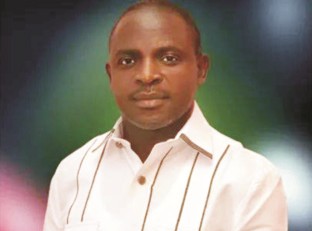… Nigerian Doctors Still Perform Surgery with Candle, Torchlight Ors ― Dr. Archibong
By Kehinde Akintola – Abuja
The Federal Government disclosed that it would require a whooping sum of N1.08 trillion ($2.83 billion) funding over the next 10 years to fix the primary healthcare system across the country.
This was disclosed at the three-day retreat for National Assembly members on amendments of National Health Act, 2014, where members of the House of Representatives expressed the 9th Assembly’s resolve to address various gaps in the extant legislation including the National Health Insurance Scheme (NHIS).
While reflecting on the poor state of the country’s health sector, Hon Henry Archibong (PDP-Akwa-Ibom), who decried the dearth of infrastructure including power across the country, underscored the need for proactive steps to retain human resources required in the health sector and stop the migration to greener pastures.
“We need to retain our human resources. I am a medical doctor and I remember when I used to practice, I have done surgeries with lantern, I have done surgeries with candles, I have done surgeries with Torchlights and a lot of Nigerian Doctors still do that.
“So it’s not as if we are having scarcity of professionals, if you go abroad, you will find out that 7 or 6 out of 10 Doctors practising abroad are Nigerians. One of the reasons why they are leaving is that the healthcare system is not properly organised to be able to retain those human resources for health.
“So we need to make laws, we need to review the laws to make sure that those people stay back in this country and give our people the much-needed attention and the treatment,” Hon Archibong stressed.
In an interview with Parliamentary Correspondents, the Minister of Health, Dr Osagie Ihanire, who reiterated the resolve of the present administration towards revitalization and operationalisation of the 10,000 PHCs across the country, disclosed that there are available data showing to confirm that 30% of the PHCs have so far been revitalised.
He also tasked subnational governments on the need to ensure year on year increase in budgetary allocation for health, in line with Abuja Declaration as well as strengthening innovative funding mechanism by pushing for dedicated health tax (such as Sin taxes, telecom, etc) related funding with adequate protection.
The Minister, who spoke during an interview at the sideline of the Retreat, disclosed that the present administration has “resigned the primary healthcare centre. Before the primary healthcare centre is just like a dispensary that will be open by 8 o’clock and close by 4. Now we want it to be comprehensive, open round the clock, that means you must have staff quarters there. Every primary healthcare centre, we have a new design for it.
“They must have light, and the most reliable here is solar-powered light. So we have solar-powered light both for the primary healthcare centre and the staff quarters. They must have water, they must have a borehole, then they will have equipment, they will have human resources on health, they will have midwives, they will have nurses and a doctor if possible. You can’t have a doctor everywhere but if we have one, it’s fair.
“We can also involve the private doctor, private doctors who want to come and manage these hospitals can do that. So there are many options to make sure we get these primary health centres working.
The Minister also beckoned on Development Partners, Civil Society Organisations and philanthropists to synergize with Federal Government in achieving the feat, stressing that the project requires “We are also looking to our partners if you want to help us this is the time to help us to build these primary healthcare centres we need about 9,800. “It’s a lot of money, I cannot give you a figure but we have about 3,000 working now, so we have about a-third and we need more. There are some we need to upgrade, which cut across all the states.
“We want to upgrade them just like I told you now, a staff quarter, some are like dispensary like I told you. That is the agenda of the President to have sound healthcare available at the grassroots, the villages in the semi-urban areas, in the other areas we have massive grassroot where they don’t even have transport to go all the way to big hospitals but they can reach the nearby primary healthcare centres.
“And with the programme the health insurance is launching, at the basic health provision fund, members will get a card you can go for your treatment, and if you have something like hypertension, you will not only be diagnosed, you will be given medicine free of charge, that is the vision that President Buhari has.
“And if we have something like diabetes, you are assured of medicine, so that will galvanize the pharmacy industry in Nigeria because the bulk purchase of these medicines will activate and strengthen the pharma industry to start producing more and they become bigger because they will be selling across the country,” he opined.
While responding to question bothering on the grey areas impeding the implementation of the National Health Act for the benefits of the citizens, Dr Ehanire argued that the National Health Act is working well, however, stressed the need for few grey areas to be addressed.
“The National Health Act as being implemented is working well but there are few areas that need to be repaired but the major areas have been well thought-out and we are working on them. All these will take time and we have some issues that we need to repair as we go along. But with the Health Act as it is we need very minor alteration.”
According to him, some of the areas requiring alteration include: “As I said there are very minor issues which have to do with funding, and also with designation and to also add a portion outside of the emerging field for the public health security and some minor areas about governance for tertiary healthcare.”
While reflecting on some of the intervention programmes to be rolled out by the present administration, Dr Ehanire said: “we are going to do what the situation allows, that’s why we are mapping all the ambulances that we have across the public and private sector. “The government will not have enough ambulances, altogether, private and public was 1,500 ambulances that are functional but our estimate is that totally one day we will need 5,000 so it’s not going to cover everywhere.
“But there are people who are already asking us that if you are going to do this programme, they want to go and buy an ambulance and station them in the right places because they will be paid like Uber for every service you do, you will be paid money so that you can use the ambulance like taxis, so far you have the right mix of experts.
“So that way you are generating jobs, you are providing service, and they can position themselves in critical areas where they are needed. But it’s over five years that we intend to do that, but we have to start somewhere; continue to learn lessons because it’s a missing link in the health sector. The missing link we need to improve because it provides access.
“The major problem is lack of physical access, how do you get there at 2 O’clock in the night? If you get there and you’re told to pay, how do you get the money? Even if you have money in the bank at that time you don’t have the money in your pockets? So that area of financial access, physical access and that you get there on time to save lives.”
In his presentation, NHIS Chief Executive Officer, Mohammed Sambo who accused the drafters of the Nigerian Constitution who behaved as if they have never been sick, of ignoring issues related to health, observed that the concerned stakeholders in finding an escape route unanimously resolved to enact the National Health Act.
He however admitted that the legislation has issues bothering on governance, hence called for urgent review with a view to blocking the gaps, including formation of the multi-disciplinary steering committee and review Committee that will develop strategies for its implementation.
 Newsfront Online …Telling the Public as it is
Newsfront Online …Telling the Public as it is




